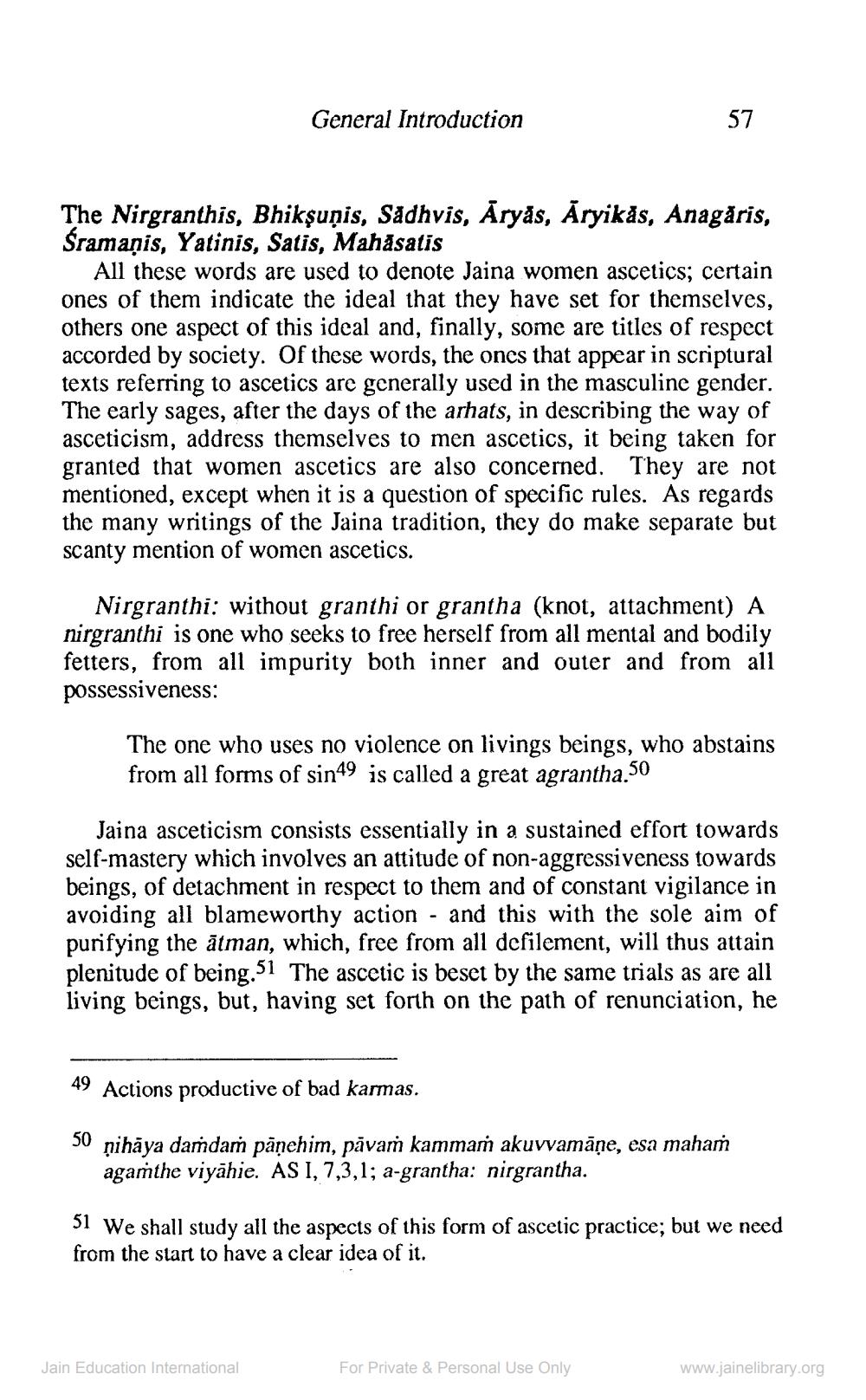________________
General Introduction
The Nirgranthis, Bhiksuņis, Sadhvis, Āryas, Āryikas, Anagaris, Sramanis, Yatinis, Satis, Mahasatis
All these words are used to denote Jaina women ascetics; certain ones of them indicate the ideal that they have set for themselves, others one aspect of this ideal and, finally, some are titles of respect accorded by society. Of these words, the ones that appear in scriptural texts referring to ascetics are generally used in the masculine gender. The early sages, after the days of the arhats, in describing the way of asceticism, address themselves to men ascetics, it being taken for granted that women ascetics are also concerned. They are not mentioned, except when it is a question of specific rules. As regards the many writings of the Jaina tradition, they do make separate but scanty mention of women ascetics.
Nirgranthi: without granthi or grantha (knot, attachment) A nirgranthi is one who seeks to free herself from all mental and bodily fetters, from all impurity both inner and outer and from all possessiveness:
The one who uses no violence on livings beings, who abstains from all forms of sin49 is called a great agrantha.50
Jaina asceticism consists essentially in a sustained effort towards self-mastery which involves an attitude of non-aggressiveness towards beings, of detachment in respect to them and of constant vigilance in avoiding all blameworthy action - and this with the sole aim of purifying the ātman, which, free from all defilement, will thus attain plenitude of being.51 The ascetic is beset by the same trials as are all living beings, but, having set forth on the path of renunciation, he
49 Actions productive of bad karmas.
nihāya damdam pāņehim, pāvam kammaṁ akuvvamāņe, esa maham agamthe viyāhie. AS I, 7,3,1; a-grantha: nirgrantha.
51 We shall study all the aspects of this form of ascetic practice; but we need from the start to have a clear idea of it.
Jain Education International
For Private & Personal Use Only
www.jainelibrary.org




